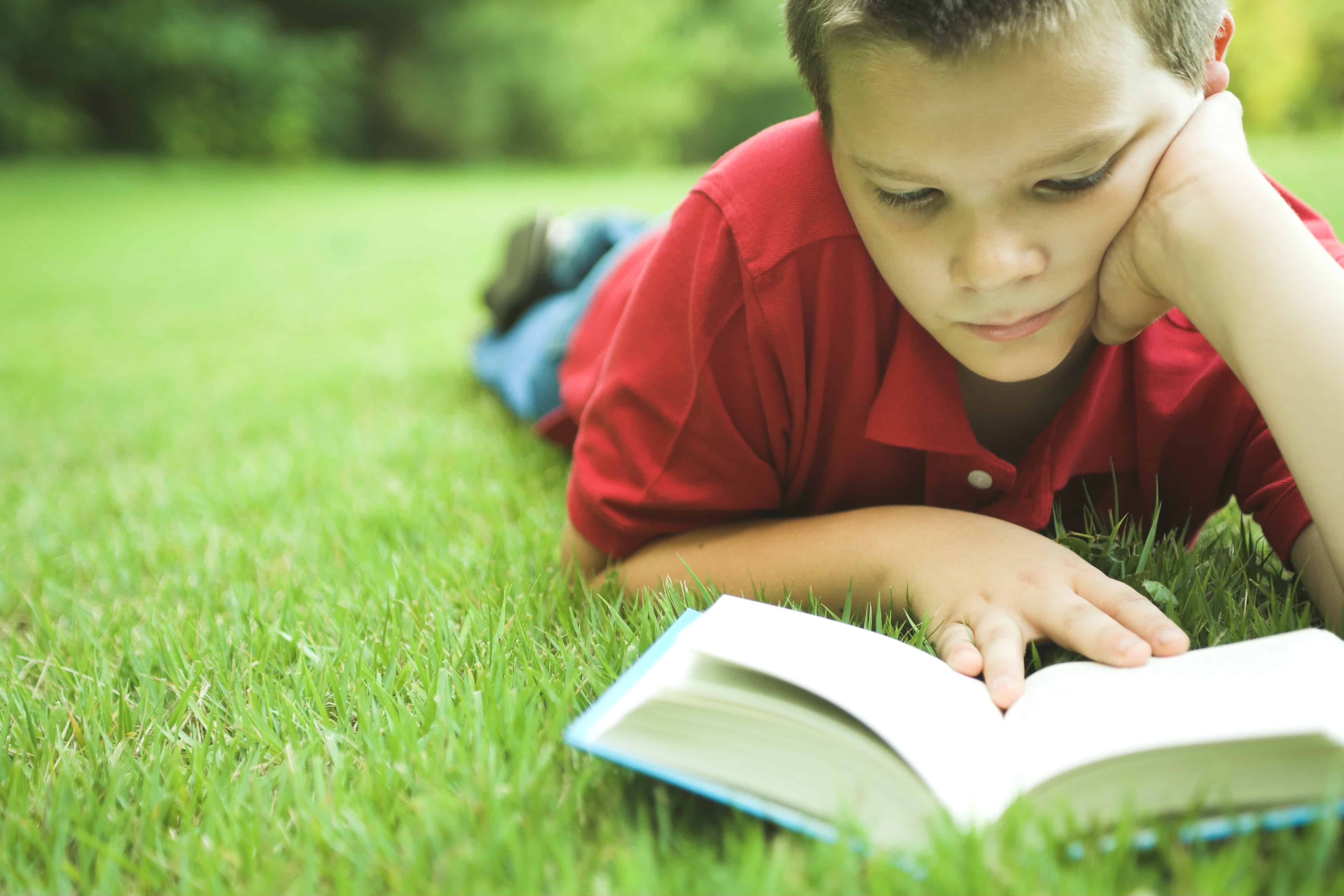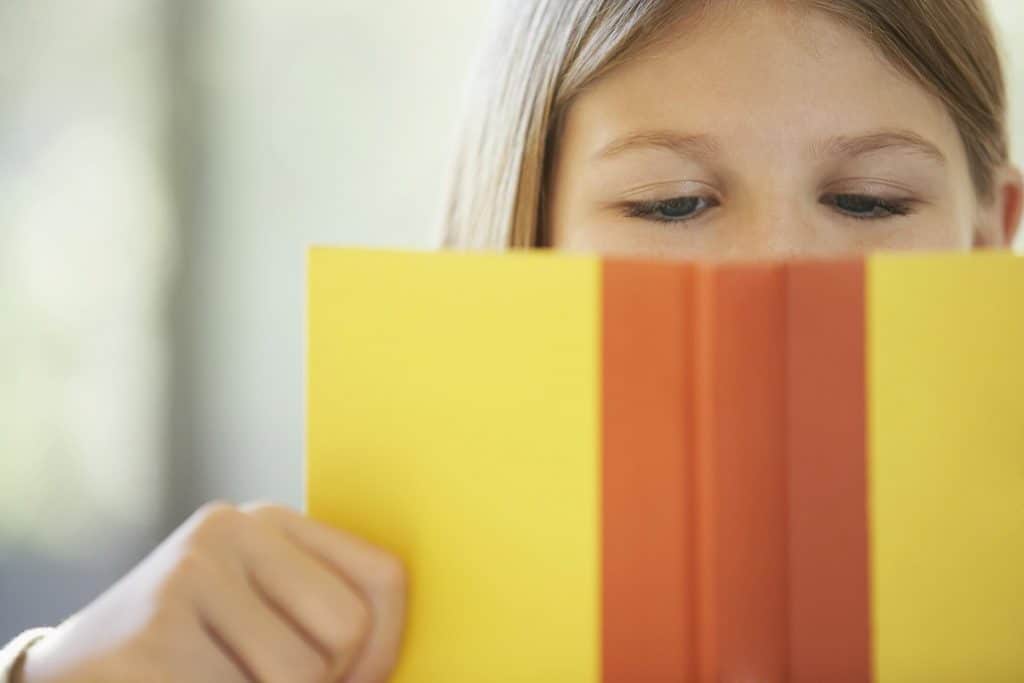School’s out, and it’s time for both teachers and students to relax before preparing for next year. But even over summer break, students still need educational opportunities so they can return to school strong and ready to learn more. Unfortunately, not all students have the same academic opportunities available to them during the summer.
One of the most common causes of the achievement gap, or the differences in scores between disadvantaged and advantaged children, is summer learning loss (also known as the summer slide). Because at-risk students don’t always have educational resources over the summer, they are particularly vulnerable to losing knowledge gained over the school year.
But when parents and educators team up, they can help prevent summer learning loss from affecting their students. Read on to learn about the connection between summer learning loss and the achievement gap, then find five ways to keep the summer slide at bay.
What Is the Summer Slide?
 When students return to school after summer break, teachers expect them to have lost some of the knowledge that they gained the previous school year. This phenomenon is known as summer learning loss, or the summer slide. A student’s exposure to educational activities isn’t usually as rigorous during the summer as it is in the classroom, and some students may need a refresher at the beginning of the new year.
When students return to school after summer break, teachers expect them to have lost some of the knowledge that they gained the previous school year. This phenomenon is known as summer learning loss, or the summer slide. A student’s exposure to educational activities isn’t usually as rigorous during the summer as it is in the classroom, and some students may need a refresher at the beginning of the new year.
But learning loss doesn’t affect every student equally, and summer slide statistics show that some demographics are more vulnerable to falling behind than others. Children of under-resourced families, for example, are more likely to lose more knowledge over the summer than children from wealthy families.[1] Children with learning disabilities are also vulnerable to learning loss without the instructional support they receive throughout the school year.[2]
Summer vacation should, in part, be a break for students to relax after a long school year. But that doesn’t mean parents and educators shouldn’t take steps to prevent learning loss. Research has found that in severe cases, the summer slide can place students as much as three months behind their peers when they return to school in the fall.[3] And if they’re consistently losing knowledge over the summers, these students are less likely to graduate high school or have higher-paying jobs later in life.[4]
How Summer Learning Loss Widens the Achievement Gap
The literacy rate in America is marked by a gap between privileged and disadvantaged communities. This achievement gap is defined as the average differences in test scores and grades under-resourced and minority students achieve compared to their peers. Even during summer break, it’s important for teachers to consider and find ways to reduce the educational inequality that leads to reading gaps.
Statistics show that over two-thirds of the achievement gap is caused by the summer slide.[1] Specific causes vary from family to family, but they often have to do with limited resources and opportunities when there’s not as much free time or money to provide students with books or educational activities. For this reason, at-risk students are less likely to read over the break or challenge themselves as much as other students.[4]
This lack of educational experiences during the summer often can result in serious learning loss that’s evident once they return to school in the fall. As they return to school unprepared and behind their peers, the gaps between their test scores and others in their class may grow larger over time.[5] In severe cases, they may struggle to ever catch up during the year, compounding the effects of the summer slide year over year. In this way, summer learning loss not only causes but widens the achievement gap over time.[2]
Addressing Summer Slide Promotes Equity in Education

The amount of time a child spends reading is directly connected to preventing summer learning loss and promoting long-term success.[3] Don’t treat summer vacation as a “break” from learning.[5] As an educator, you can take steps to prepare your students for a fun summer break while helping them prevent long-term learning loss.
Using strategies that promote an inclusive classroom during the school year can be a great way to prevent the achievement gap. But you don’t have to stop on the last day of school and leave at-risk students unprepared for the summer. If possible, provide a few educational activities or resources for at-risk kids to use during the break.[6] You could, for example, give under-resourced students a few books to take home. That way, every student has access to resources that can help them retain knowledge over the summer.
In a similar vein, summer school can be a useful way to keep struggling students from falling further behind. In a meta-analysis of over 93 studies, educational researchers found that summer school generally provides lasting gains for at-risk students.[4] But there is a caveat: summer school is most effective if the child attends with the motivation to learn, not if they’re attending because it’s mandatory.[7] If summer school is a resource you’d like to use for your students, try to encourage intrinsic motivation throughout the school year.
Parent engagement can also be a crucial strategy for preventing the summer slide.[8] Before school gets out for the summer, connect parents with guided reading activities and summer learning programs for elementary students. Let them know that if they have any questions over the break, they can always reach out to you for support. If parents know that you’re on their side, they’ll feel better prepared to assist their students over the summer.
12 Fun Activities and Tips to Prevent Summer Learning Loss
Preventing summer learning loss can seem daunting, but as an educator, you have the power to help students succeed. By engaging students and their families in educational activities, and supplementing any potential disadvantages, you can help every student start the next school year ready to learn.
Here are 12 ways to help students maintain the knowledge they learned over the year and avoid summer slide:
- Libraries often have plenty of fun activities to prevent summer slide, from read-alouds to book reading challenges. Summer activities may look a little different this year, depending on policies in your area, but encourage families to take advantage of any summer programs available over the summer. Children who visit the library often can develop their love of learning over the summer.[1]
- If your school budget allows it, gift students a small picture or chapter book at the end of the school year.
- Share out this list of math games you can play with just a deck of cards so families can practice math skills with their students.
- Enrolling children in a summer learning program can help them challenge their brains and learn new things over the break. For low-income families, city community centers often have free or low-cost summer activities.[9]
- Share free book and audiobook resources with parents, like Project Gutenberg or Audible Stories.
- Summer reading programs at school can keep students reading over the summer. Teachers, consider compiling a summer reading challenge for students coming into your class next year.[10]
- Check in with parents over summer break to answer any questions they have about teaching math and reading from home.
- Journaling can be a useful way for kids to practice writing when they’re not in school. Before the end of the year, provide students with a notebook for journaling or share the benefits of journaling with their parents.[12]
- Start a summer book club with your former or upcoming students to keep them learning outside of school.
- Although teachers can make a difference, they can’t do it alone. Thankfully, there are a lot of good at-home activities for families that help prevent summer slide. Inform parents about summer learning loss and provide them with a few ideas for them to practice math and reading with their students from home.[3]
- Children with disabilities can feel lost over the summer without school support or resources. Find ways to provide similar resources at home or connect children with disabilities to peers who they can work with over the summer.[2]
- Studies show that reading six books over the summer can help prevent the summer slide. Share this insight with parents along with a list of recommended reads for your classroom’s grade level.[11]
Sources:
1. Colorado Department of Education. Summer Slide and the Importance of Reading over the Summer. Retrieved from cde.state.co.us: https://www.cde.state.co.us/cdelib/summerslide.
2. Patton, K.L.S., and Reschly, A.L. Using Curriculum-Based Measurement to Examine Summer Learning Loss. Psychology in the Schools, August 2013, 50(7), pp. 738-753.
3. Lundstrom, M. Stop the Summer Reading Slide. Scholastic Instructor, May 2005, 114(8), pp. 20-26.
4. Krueger, A.B. Economic Scene; Vouchers for summer school could help halt the learning slide. Retrieved from nytimes.com: https://www.nytimes.com/2000/08/17/business/economic-scene-vouchers-for-summer-school-could-help-halt-the-learning-slide.html.
5. Borman, G. Summers Are for Learning. Principal Journal, January 2001, 80(3), pp. 26-29.
6. Green, A.M., Lewis, J., Kent, A., Feldman, P., Motley, M., Baggett, P., Shaw, E., Byrd, K., Simpson, J., Jackson, T., and Lewis, W. Limiting the Academic Summer Slide for Urban Elementary School Students. National Teacher Education Journal, Spring 2011, 4(2), pp. 87-92.
7. Borman, G.D., and Dowling, N.M. Longitudinal Achievement Effects of Multiyear Summer School: Evidence from the Teach Baltimore Randomized Field Trial. Educational Evaluation and Policy Analysis, 2006, 28(1), pp. 25-48.
8. Kerry, T., and Davies, B. Summer Learning Loss: The Evidence and a Possible Solution. Support for Learning Journal, 13(1), August 1998, pp. 118-122.
9. Borman, G.D., Goetz, M.E., and Dowling, N.M. Halting the Summer Achievement Slide: A Randomized Field Trial of the KindergARTen Summer Camp. Journal of Education for Students Placed at Risk, 2009, 14(2), pp. 133-147.[16]
10. Turner, L., and Tse, L. Solving summer slide: Strategies and suggestions. SET Journal, 2015, 1, pp. 16-24.
11. Scholastic Parents Staff. Three Ways to Prevent Summer Slide. Retrieved from scholastic.com: https://www.scholastic.com/parents/books-and-reading/reading-resources/developing-reading-skills/three-ways-to-prevent-summer-slide.html
12. Zaharako, R. Stimulating Learning Beyond the Classroom. Retrieved from edgenuity.com: https://blog.edgenuity.com/stimulating-learning-to-prevent-summer-slide/.

